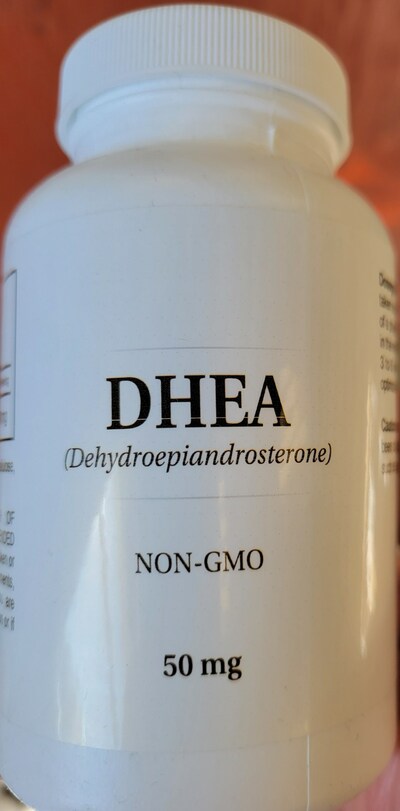Public advisory - Unauthorized prescription and controlled drugs seized from two natural food stores in Sudbury, Ontario, because they may pose serious health risks Français
OTTAWA, ON, Feb. 20, 2023 /CNW/ -
Summary
- Product: Unauthorized health products labelled to contain prescription and controlled drugs
- Issue: Health products – Product safety
- What to do: Do not use these products. Return them to your local pharmacy for proper disposal. Consult a health care professional if you have used any of these products and have health concerns. Prescription drugs can only be legally sold with a prescription. Buy your prescription drugs from licensed pharmacies only.
Affected products
Product |
Promoted use |
Prescription drug on the label |
Retailer |
DHEA (Dehydroepiandrosterone)
|
Workout supplement |
Labelled to contain DHEA (dehydroepiandrosterone) |
Paris Natural Foods 1500 Paris Street Sudbury, ON
|
Natrix Nutraceuticals Inc. Dioscorene Natural Progesterone Cream
|
Hormone replacement therapy |
Labelled to contain progesterone |
Paris Natural Foods 1500 Paris Street Sudbury, ON |
Paragon Alternative Medical Clinic Amore Exotic Herbal Formula |
Sexual enhancement |
Labelled to contain yohimbe |
Paris Natural Foods 1500 Paris Street Sudbury, ON |
Paris Natural Foods Vitamin D3 (4,000 IU)
|
Vitamin supplement |
Labelled to contain prescription-strength vitamin D3 |
Paris Natural Foods 1500 Paris Street Sudbury, ON
Durham Natural Foods 1191 Montrose Avenue Sudbury, ON |
Paris Natural Foods Vitamin D3 (10,000 IU) |
Vitamin supplement |
Labelled to contain prescription-strength vitamin D3 |
Paris Natural Foods 1500 Paris Street Sudbury, ON
Durham Natural Foods 1191 Montrose Avenue Sudbury, ON |
Health Canada seized unauthorized health products from two natural food stores in Sudbury, Ontario, because the products are labelled to contain prescription or controlled drugs, which may pose serious health risks.
The unauthorized products include prescription-strength vitamin D3 supplements, hormones in capsule and cream format, and a sexual enhancement product.
Selling unauthorized health products in Canada is illegal. Unauthorized health products have not been approved by Health Canada, which means that they have not been assessed for safety, efficacy and quality and may pose a range of serious health risks. For example, they could contain high-risk ingredients, such as prescription drugs, additives or contaminants that may or may not be listed on the label. These ingredients could interact with other medications and foods. In addition, these products may not actually contain the active ingredients that consumers would expect them to contain to help maintain and improve their health.
Prescription drugs should only be used under the advice and supervision of a health care professional because they are used to treat specific conditions and may cause serious side effects. Prescription drugs can only be legally sold with a prescription.
What you should do
- Do not use these products. Return the product to your local pharmacy for proper disposal.
- Consult a health care professional if you have used any of these products and have health concerns.
- Buy your prescription drugs only from licensed pharmacies.
- Read product labels to verify that health products have been authorized for sale by Health Canada. Authorized health products have an eight-digit Drug Identification Number (DIN), Natural Product Number (NPN) or Homeopathic Drug Number (DIN-HM). You can also check whether products have been authorized for sale by searching Health Canada's Drug Product Database and Licensed Natural Health Product Database.
- Report any health product-related side effects or complaints to Health Canada.
Dehydroepiandrosterone (DHEA) is a controlled substance that can cause higher-than-normal levels of female and male hormones in the body and could increase the risk of prostate, breast, ovarian and other hormone-sensitive cancers. Potential side effects include serious cardiovascular disease, and changes in fertility and sperm production. DHEA should be avoided by individuals with a history of abnormal heart rhythms, blood clotting disorders, liver disease and those who are pregnant or breastfeeding.
Progesterone is a prescription drug and can be associated with serious side effects, particularly in patients at risk of blood clots. Patients who are taking progesterone-containing medications (such as birth control pills or hormone replacement therapy) may be at an increased risk due to their overall progesterone exposure. Health risks from the use of a progesterone cream would likely arise with long term use.
Vitamin D is considered a prescription drug when taken orally (by mouth) at doses of more than 2,500 International Units (IU) per day. Too much vitamin D can lead to vitamin D "intoxication," which can cause weakness, fatigue, drowsiness, headache, lack of appetite, dry mouth, metallic taste, nausea, vomiting, vertigo, ringing in the ears, lack of coordination, and muscle weakness. Pregnant people in particular should not take vitamin D exceeding the daily tolerable upper intake level for adults (4,000 IU). High levels of vitamin D taken during pregnancy can potentially lead to high calcium levels in the pregnant person, which can be associated with risks to the newborn.
Yohimbine is a prescription drug and should be used only under the supervision of a health care professional. Yohimbine is derived from yohimbe, a bark extract. The use of yohimbine or yohimbe may result in serious adverse reactions, particularly in people with high blood pressure or heart, kidney or liver disease. Side effects include increased blood pressure and heart rate, anxiety, dizziness, tremors, headache, nausea and sleep disorders. It should not be used by people who are pregnant or breastfeeding.
Également disponible en français
SOURCE Health Canada

Media Enquiries: Health Canada, (613) 957-2983, [email protected]; Public Enquiries: (613) 957-2991, 1-866 225-0709, [email protected]






Share this article